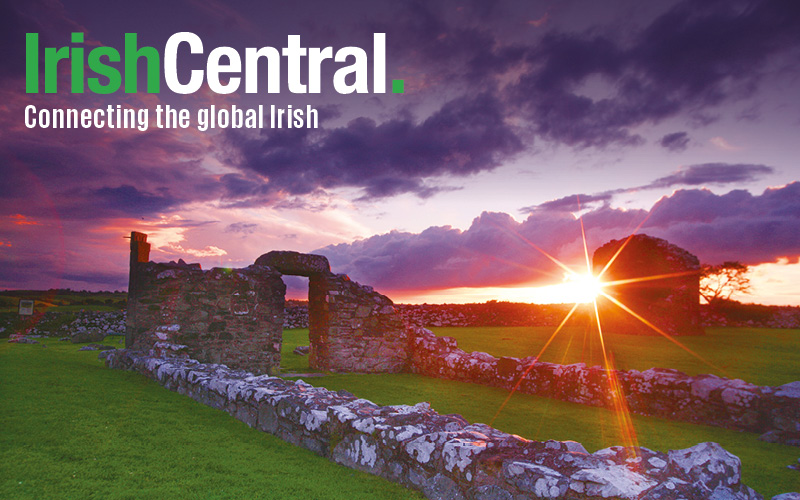The names Fitzgerald, Fitzpatrick and others with the prefix "Fitz" are numerous in Ireland. The name-form, however, is Norman and most of the families arrived in Ireland during the 12th century. The Normans, who were French in origin, conquered many parts of Ireland but gradually adopted the Gaelic language and customs and to a great extent assimilated with the native population, becoming more Irish than the Irish themselves. The Fitz prefix is derived from the French "fils" meaning "son of" and is equivalent to the Gaelic prefix "Mac". Among the names with this prefix are Fitzgerald, Fitzpatrick, Fitzsimmons, Fitzgibbon, Fitzmaurice and a few rarer names. The name Fitzpatrick, however, is not Norman at all but is derived from the Gaelic name MacGiolla Padraig (son of the follower or servant of Patrick), which has been translated into the Norman form. The name Fitzgerald is the most common of the Fitzs and this family has an honorable place in Irish history. The name originated with Maurice, the son of Gerald, who came to Ireland with the main Norman invasion in 1169. Two strong branches of the Fitzgerald family developed over the next few centuries. These were the Dukes of Leinster (or Earls of Kildare) and the Earls of Desmond in Munster. These families were among the most powerful Irish families up to the 16th century and have played very significant parts in Irish history. The greatest of them was perhaps Garret Mr Fitzgerald (d.1513), the 8th Earl of Kildare, who was such a powerful force that Henry VII made him his deputy in Ireland, remarking, "If all Ireland cannot rule this man, then let this man rule all Ireland." The power of the Geraldines ended in 1536 when, following an impetuous rebellion by "Silken Thomas" Fitzgerald (1513-1537), a powerful English army was sent against them and the family leaders were executed. The power of the other branch of the Fitzgeralds, the Desmonds, was broken in the 1580s when they rebelled against the increasing encroachment of the Elizabethan administration on their territories. despite the breaking of the power of these major Fitzgerald families, members of the family have played significant parts in Irish history. These included Lord Edward Fitzgerald (1763-1798), who became one of the leaders of the rebel United Irishmen and died of wounds received while being arrested for these activities. In this century Desmond Fitzgerald (1888-1947) was among the rebels who occupied the General Post Office in 1916. He subsequently became a member of the Irish Dail and a government minister. His son Garrett Fitzgerald has served as prime minister of Ireland on several occasions. Among the most notable American Fitzgeralds are Thomas Fitzgerald (1819-1891), a pioneering Philadelphia publisher and advocate of social reforms. Among other innovations, his newspaper, The Pennsylvania Volunteer, was the first to report professional baseball. In the American War of Independence there were 84 Fitzgeralds enlisted in the Revolutionary Army, including Colonel John Fitzgerald, friend and aide de campe to George Washington, and said to have been the finest horseman in the Revolutionary army. He gave his name to the town of Fitzgerald, Georgia. Other Fitzgeralds included Captains John Henry Fitzgerald of the 3rd regiment, Virginia line and Bartley Fitzgerald, ensign of the Westmoreland county, Pennsylvania militia. The Fitzpatricks are a less-common family, mainly associated with County Kilkenny. Nevertheless, there were 67 Fitzpatricks in the American revolutionary army, including Captain Patrick Fitzpatrick of the Georgia Continental Brigade and Lieutenant William Fitzpatrick of Thompson's South Carolina rangers. Other notable members of the family include Benjamin Fitzpatrick (1802-1869), who despite almost no schooling became governor of Alabama and a U.S. Senator, and Morgan Cassius Fitzpatrick (1868-1908), a congressman and strong advocate of state education. The most memorable Fitzpatrick, however, is Thomas Fitzpatrick who was one of the great trappers who pioneered the West. Born in Cavan, Ireland, he went to America in his late teens and drifted west. He became an Indian agent, and later a guide with several parties that explored Wyoming and other parts. He was also a trapper and business partner of Jim Bridger and others in the short-lived Rocky Mountain Fur Company. In 1841 he led the first Pacific-bound emigrant train and acted as guide to many parties heading for California. Subsequently he became an Indian agent for Cheyenne, Arapaho and Sioux and in 1851 he arranged the Great Indian Council near Fort Laramie. This negotiated peace treaties with the North Plains Indians that lasted for several years. With Kit Carson and Jim Bridger, he was one of the three great mountain men, and was regarded by his contemporaries as the greatest of them all. Ironically, after conquering the perils of the West, he died on a trip back East due to a bout of pneumonia. The Fitzpatrick's also have a large hotel group in Ireland and will soon open, under the personal eye of John Fitzpatrick, The Fitzpatrick Manhattan, New York's only Irish owned and operated hotel. Other Fitz's include the Fitzsimmons, found in several parts of Ireland, especially Down and Cavan. Thomas Fitzsimmons, a native of Limerick, was a member of the First American Congress, which began in 1744, and Lieutenant Nicholas Fitzsimmons of the Pnn Navy and Captain Thomas Fitzsimmons of the Philadelphia City Militia were among the 36 of the family in the American revolutionary army. Among the Fitzmaurices, who are a branch of the Fitzgeralds, may be noted Colonel James Fitzmaurice (1898-1965), a Kerryman who was co-pilot on the first East-West flight across the Atlantic.




Comments